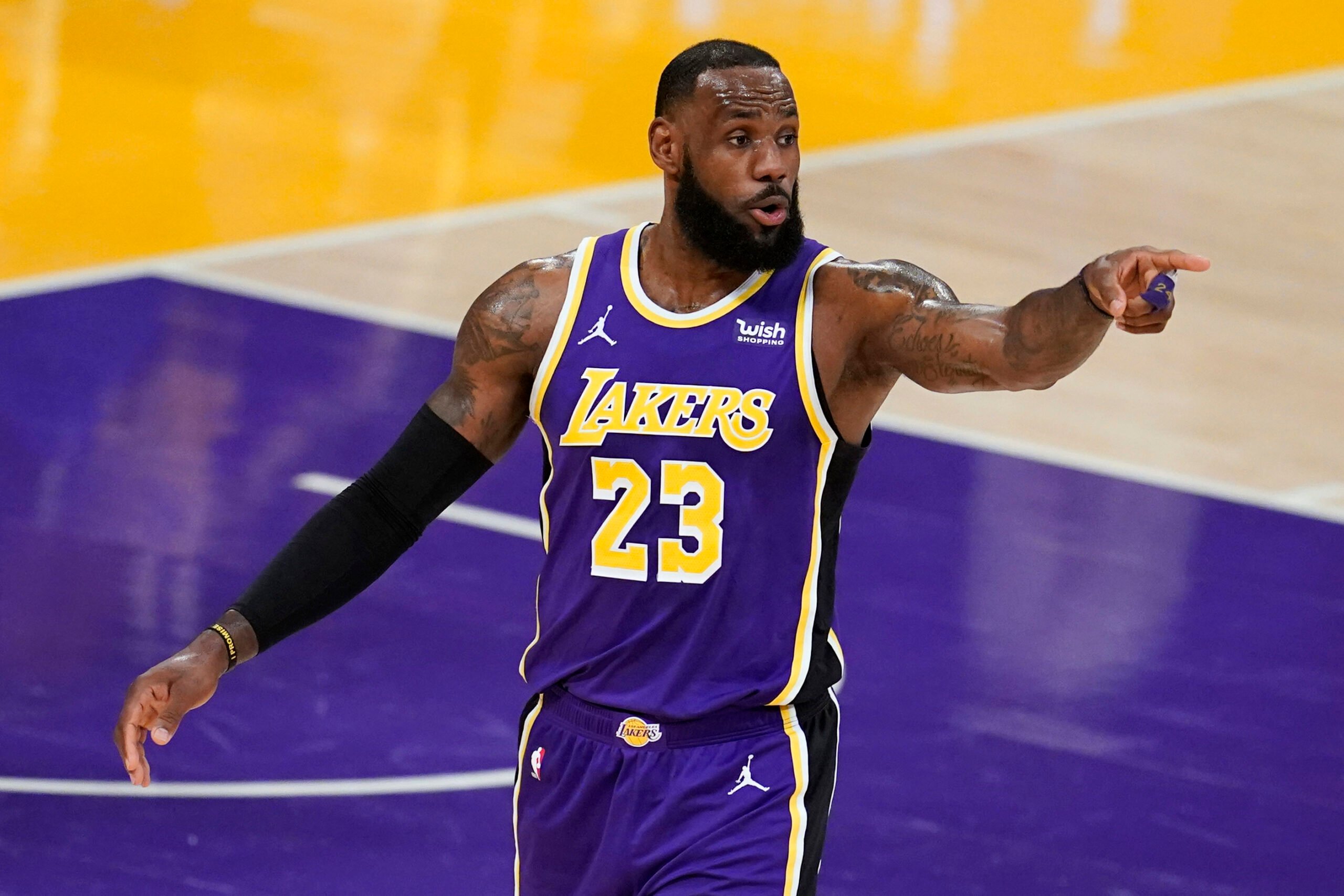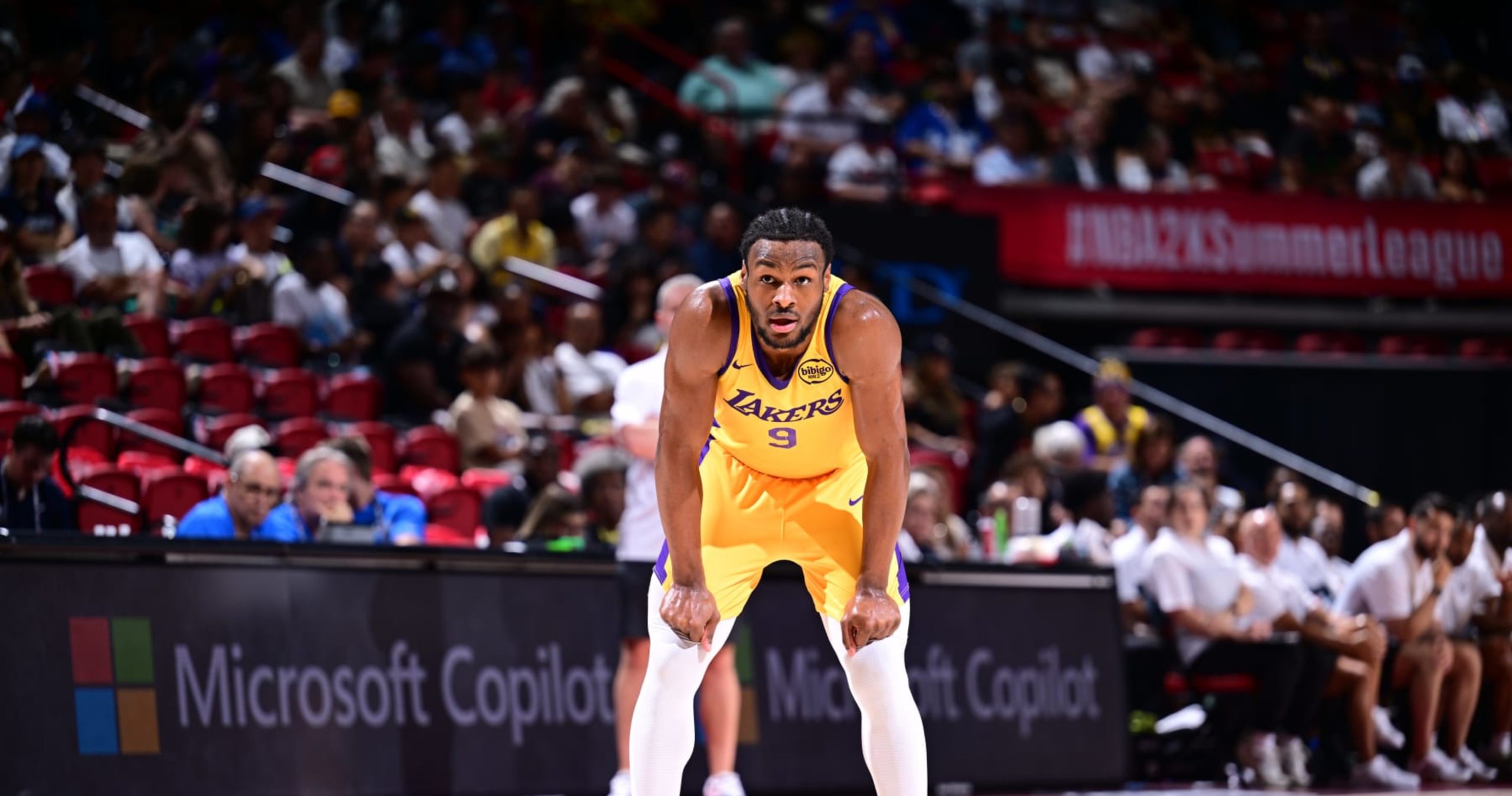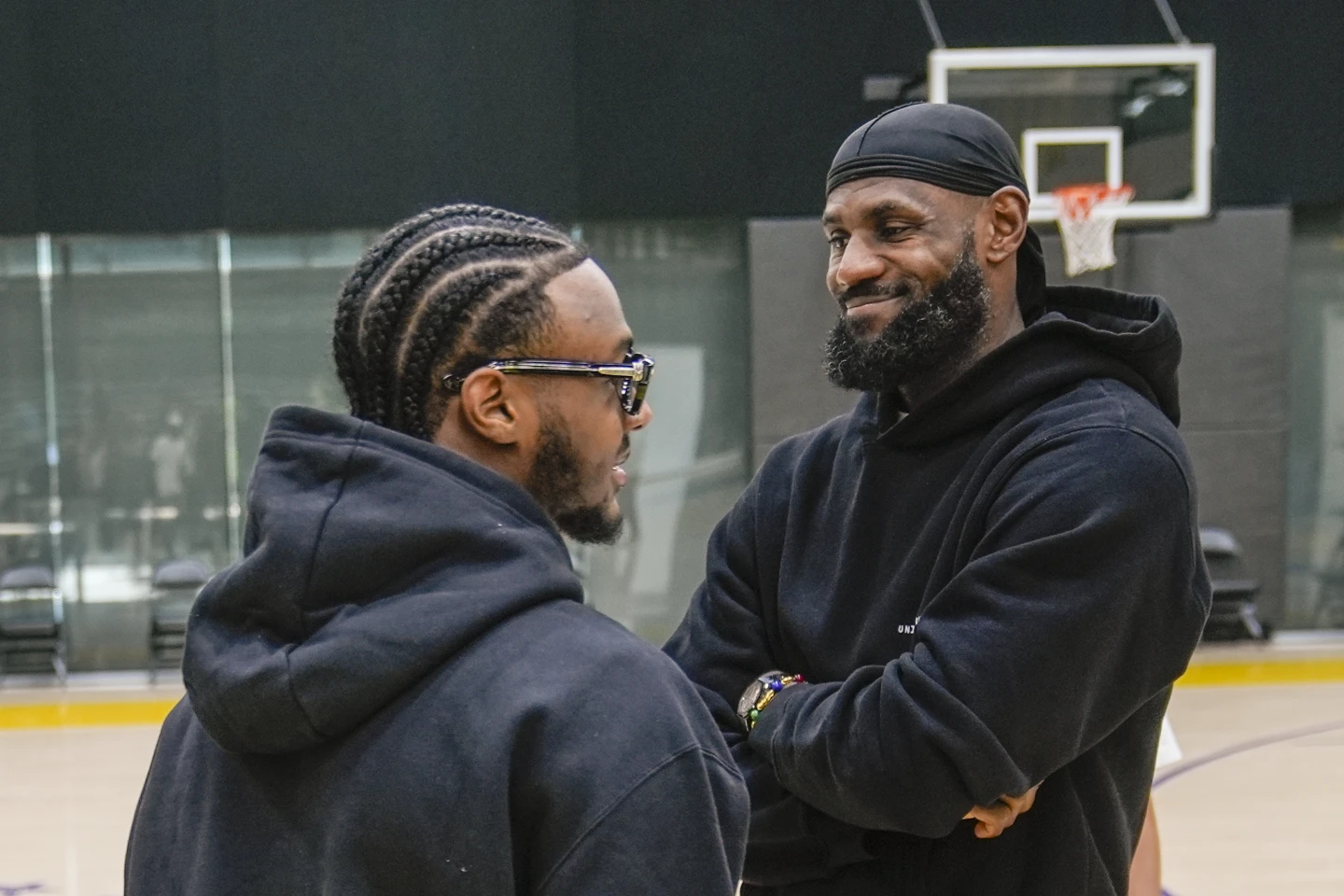LeBron James stood on the court next to his son Bronny and couldn’t help but look at him to appreciate the moment. They wore matching Los Angeles Lakers jerseys with “James” and “James Jr.” stitched in large purple letters on their backs.
“It was like the matrix or something,” LeBron said afterward. “It just didn’t feel real.”
The Lakers helped the 39-year-old LeBron achieve a long-time dream of playing alongside his son when they drafted Bronny with the 55th overall pick in June. This made them the first father-son pair to play in an NBA game together during a preseason matchup on Oct. 6.
Lakers general manager Rob Pelinka described the draft pick as “magical,” but the organization faced criticism over whether Bronny would have received this chance if his father wasn’t one of the greatest players in the game.

These concerns, while met with excitement for the James family, sparked renewed discussions about nepotism in sports and how influential figures use their power, highlighting the stigma around children following in the footsteps of successful parents or relatives.
“There’s always going to be people who are saying that things are nepotism,” said Alice Leppert, an associate professor of media and communication studies at Ursinus College in Pennsylvania. “There’s going to be some cynical assumption that strings were pulled and that things are not fair.”
That viewpoint often comes from people wanting to believe in a meritocracy, Leppert explained, which is a system where individuals gain success based on their abilities rather than wealth or social status.
“In general, we don’t live in a meritocracy,” Leppert added. “We want to live in a meritocracy, and that’s why we get these sorts of debates.”
For centuries, children born into wealthy and powerful families have inherited businesses, fame, and ample resources for success, which is a clear example of power in Hollywood, politics, and sports.

Critics of nepotism argue that those without the same access to resources—like producers and directors in the entertainment industry, or scouts and training facilities in sports—are at a serious disadvantage when it comes to opportunities.
Others wonder why this practice, which is deeply rooted in society, is even being discussed.
“I don’t want to hear these charges, people talking about nepotism,” former ESPN NBA insider Adrian Wojnarowski said during the NBA draft. “The NBA is full of nepotism. The ownership level, front offices, coaching. I don’t want to hear it all of a sudden because Bronny James’ father plays for the Lakers. It is rampant in this league.”
In NBA history, there have been about 100 cases of players entering the league after their fathers played. These young men joined the league after their fathers’ careers ended and include Stephen and Dell Curry, Kobe and Joe “Jellybean” Bryant, Bill and Luke Walton, among others.
